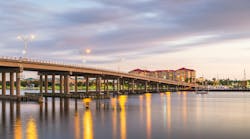The U.S. Environmental Protection Agency (EPA) has tentatively determined that there are adequate facilities near Jamaica Bay for boats to pump out their sewage, allowing the establishment of a no-discharge zone for an approximately 20,000-acre area, as proposed by the New York State Department of Environmental Conservation.
A no-discharge zone means that boats are completely banned from discharging sewage into the water. Boaters must instead dispose of their sewage at specially designated pump-out stations. This action is part of a joint EPA and New York strategy to eliminate the discharge of sewage from boats into the state’s waterways.
Discharges of sewage from boats can contain harmful levels of pathogens and chemicals such as formaldehyde, phenols and chlorine, which have a negative impact on water quality, pose a risk to people’s health and impair marine life. EPA is encouraging public comment on its proposed approval until Sept. 2, 2011.
New York has proposed to ban the discharge of boat sewage in an area of Jamaica Bay that encompasses 17,177 acres of open water and 2,695 acres of upland islands and salt marshes. The northeastern and southeastern parts of Jamaica Bay reach Nassau County, while the northern shore of the Rockaway Peninsula in Queens, N.Y., forms the southern boundary of the bay.
The bay is connected to the Atlantic Ocean through the Rockaway Inlet, and eight tributaries empty into Jamaica Bay: Sheepshead Bay, Paerdegat Basin, Fresh Creek, Hendrix Creek, Spring Creek, Shellbank Basin, Bergen Basin and Thurston Basin. Upon a final affirmative determination from EPA, New York officials may proceed to ban the discharge of boat sewage into Jamaica Bay and its tributaries.
Source: EPA

